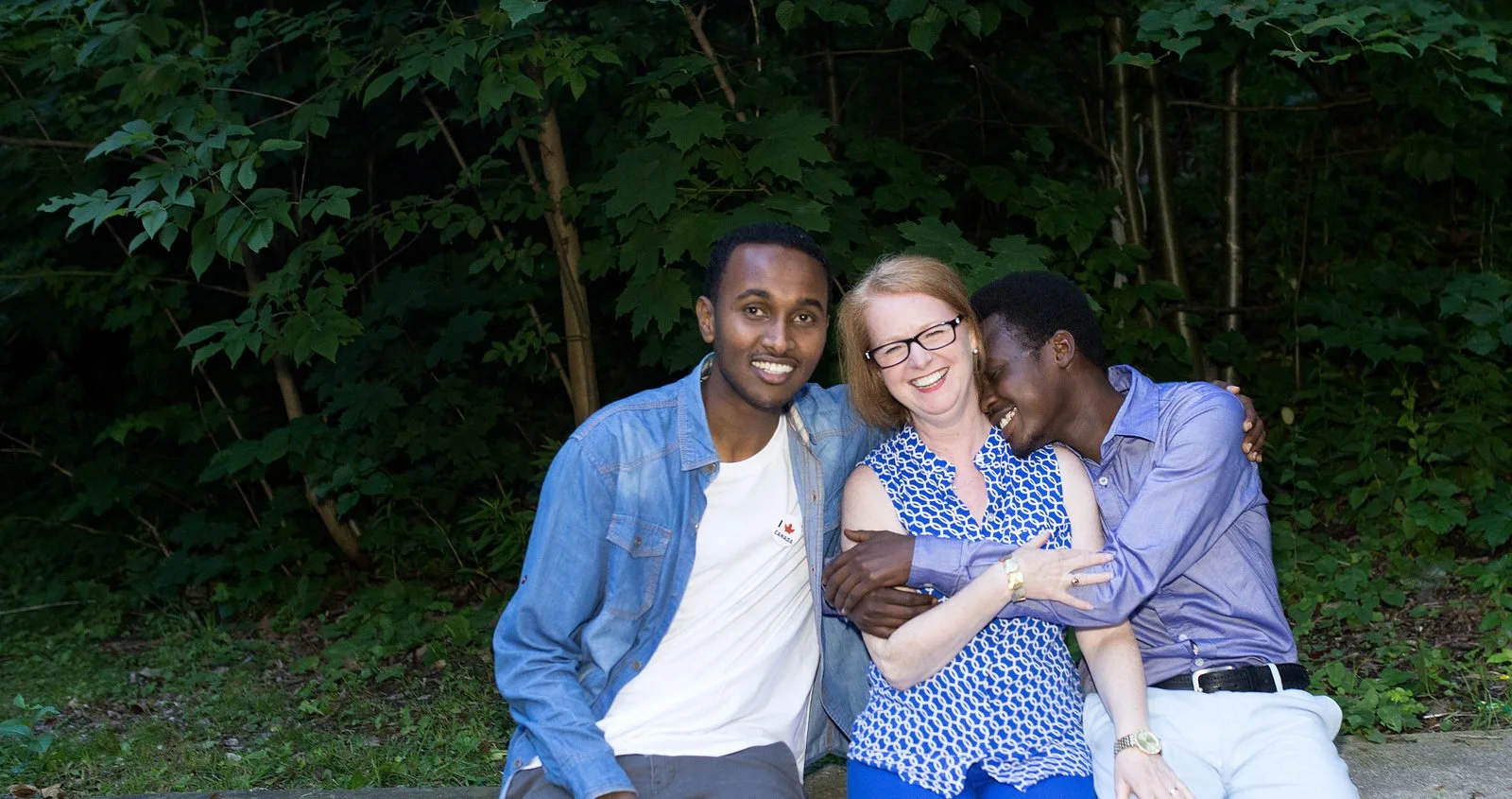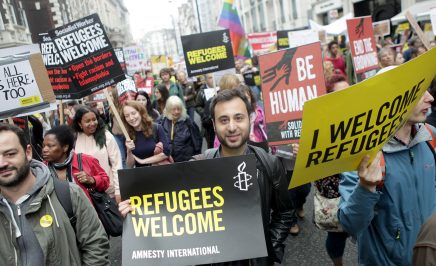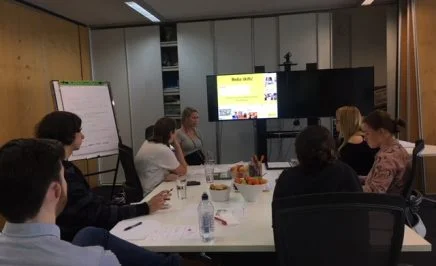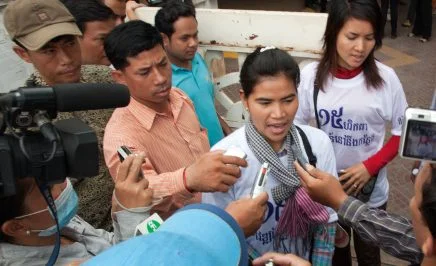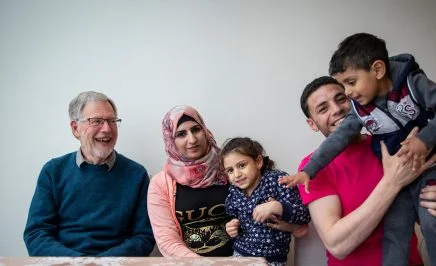The Federal Government’s Community Support Program is a new way for communities to help refugees by sponsoring them to set up home in Australia. This is an exciting opportunity to connect people seeking safety with compassionate communities willing to help.
But the program also has some significant flaws. We think it can be made better and here’s how you can help.
Embracing new neighbours
Australian communities are known for their generosity, not least towards refugees seeking a safe place to live. In the past few years, almost 150 local government areas have become self-declared Refugee Welcome Zones, committing to welcoming refugees, upholding their human rights and promoting diversity.
Lithgow in New South Wales is one of the most recent communities to become a Refugee Welcome Zone. Debbie Rayner is the chairperson of the Lithgow Asylum Seeker and Refugee Support Group, which successfully campaigned for the council to adopt the initiative.
“We felt that it was important to take the first step of acknowledging the value of welcoming refugees and asylum seekers who are in our community. It’s nice for them to hear that they’re welcome here because there’s quite a lot of negative press in Australia about refugees.”
But it’s not just a show of spirit – Lithgow residents are doing practical things that make a difference. They’ve supported newcomers with English tutoring, taken part in a ration challenge to raise money for refugees overseas and even helped lodge visa applications to reunite a family that was dispersed by persecution.
“We’ve been trying to seed into the community empathy and the ability to help. It’s good to see the community rise up and try to help in all different ways” – Debbie Rayner
It’s clear that communities like Lithgow have a lot of enthusiasm to do what they can for those whose lives have been uprooted. And now there’s a new way for them to channel their energy – by directly sponsoring refugees to come and set up a safe home in Australia.
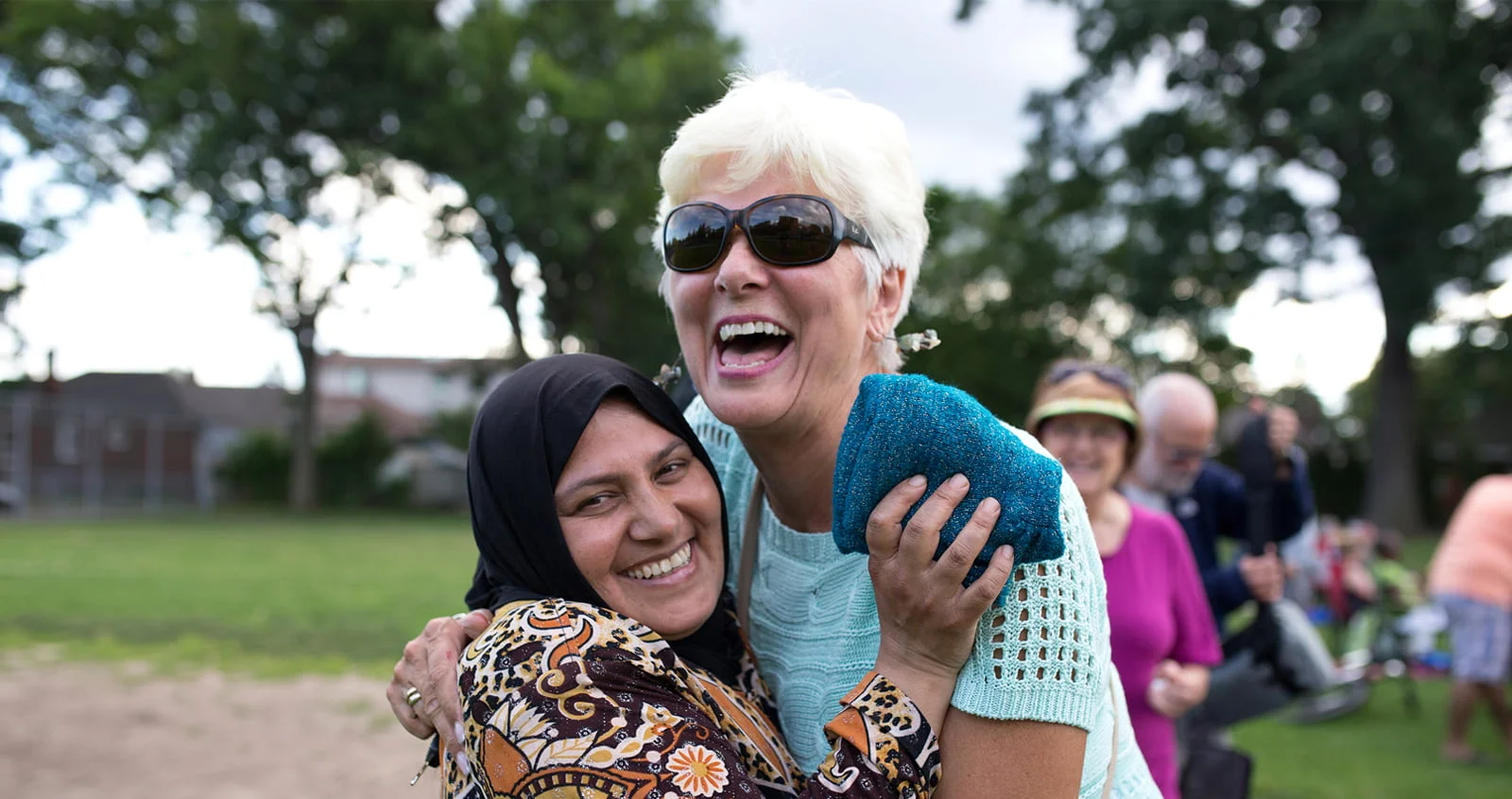
Wissam fled the war in Syria along with her husband and children. After living for three years in a refugee camp in Jordan, the family were sponsored by a group of people in Canada.
What is community sponsorship?
After a four-year pilot, the government introduced Australia’s Community Support Program (CSP), allowing community groups, businesses, families and individuals to become refugee ‘sponsors’. Sponsors propose refugee applicants for a humanitarian visa, help them to integrate into the community and commit to supporting them financially for the first year.
Up to 1,000 CSP places are available this financial year and priority is given to refugee applicants who are:
- aged 18 to 50
- employable
- willing to live and work in regional areas
- able to become financially self-sufficient within their first year in Australia.
Community sponsorship brings diversity and valuable skills into our communities. It also provides newcomers with an established network, helping them adapt to their new life and make friends more easily. It’s a win-win approach that the United Nations refugee agency has encouraged and that several countries have taken up.
Canada has had a successful private sponsorship scheme in place for almost 40 years. Together Canadians have welcomed approximately 300,000 refugees, in addition to the country’s regular humanitarian intake.
“I think anything that brings refugees into communities rather than detention should be applauded. We should go for it!” – Debbie Rayner
Changes needed to the CSP
The CSP is a great first step but there are some significant flaws in the program that should be addressed.
More spots should be created to welcome refugees into our society
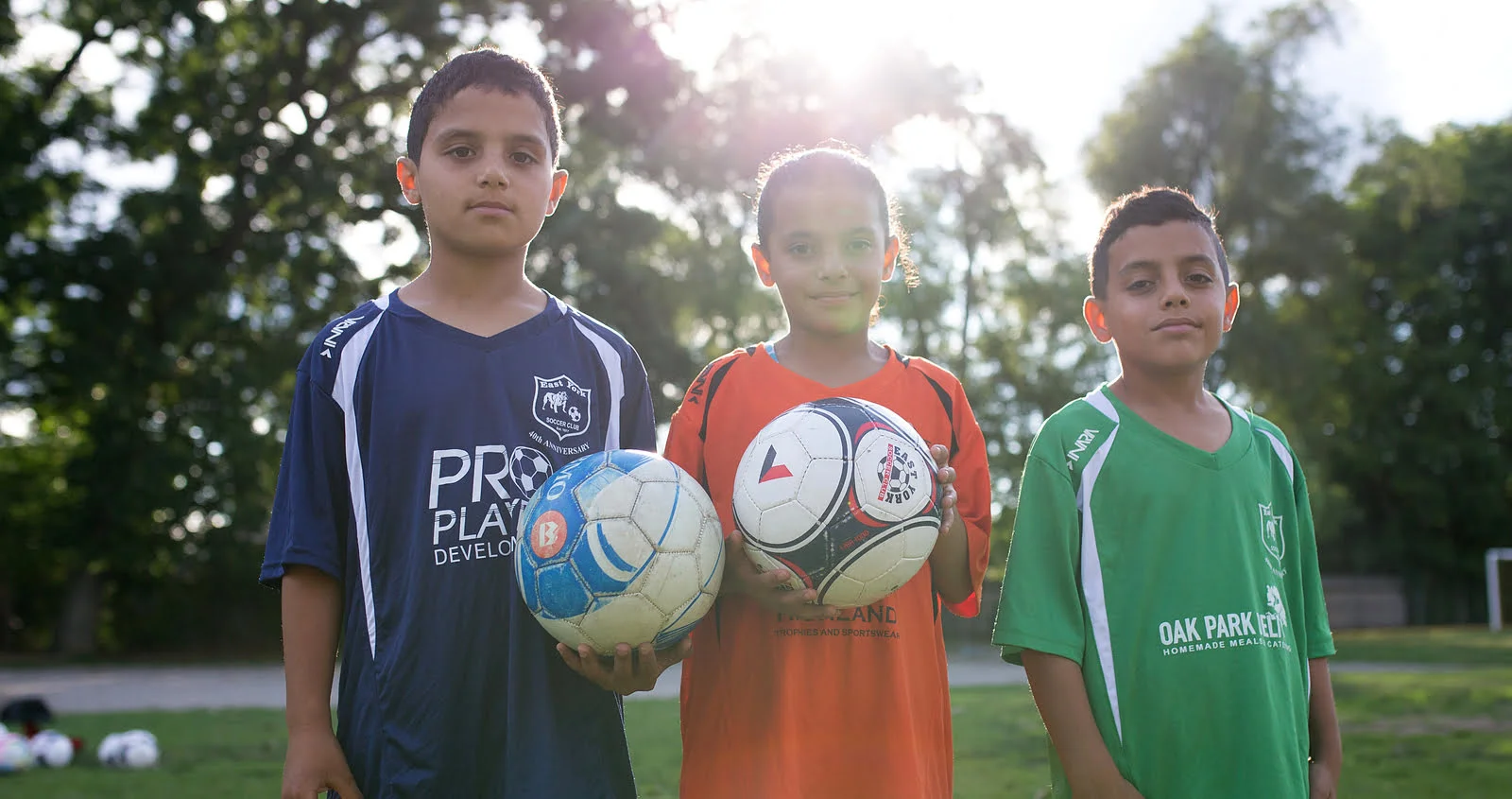
Under the current model, the government has included the 1,000 places available for this financial year within its existing quota for the Refugee and Humanitarian Program. This shifts the government’s own responsibility to resettle and protect refugees to the private sector.
With Australia’s population, wealth and community interest, we can welcome around 10,000 refugees per year through the CSP.
A fair program cannot take places from others in need
The current CSP takes places from those who desperately need protection but don’t have the job-ready skills needed to qualify for the program. According to the Refugee Council of Australia, the criteria for selection is “likely to exclude those who are particularly vulnerable and in particular need of resettlement”.
For the CSP to have true impact, the government has to separate CSP places from its existing commitments to resettle refugees under the Refugee and Humanitarian Program.
The program should be affordable for refugees and sponsors
Sponsorship is also not cheap for Australians to take part in. It’s estimated the cost of sponsoring a family of five could be in the vicinity of $92,844. That’s potentially more than three times the cost of the program in Canada.
This is unfair to both the vulnerable people seeking to rebuild their lives, and the communities willing to help.
With the 2018-19 federal budget soon to be announced, the government needs to seriously look at limiting the cost of sponsorship so that people wanting to help, can.
You can read more about our proposed improvements.
How you can help
If you want to see a fairer approach to refugee sponsorship in Australia, sign our petition calling on the Federal Government to expand and improve the CSP.
You can also start discussions in your community to encourage sponsorship, or even lobby your council to pass a motion for the Federal Government to enhance the program.
Interested in becoming a sponsor? Keep an eye on the Department of Home Affairs website for details about how to get involved.
Got thoughts to share? Tweet us at @amnestyOz using the hashtag #mynewneighbour
Ala Al-Mahaidi is an Amnesty volunteer and currently undertaking a Masters in human rights.
